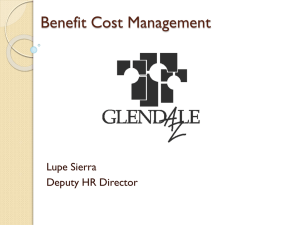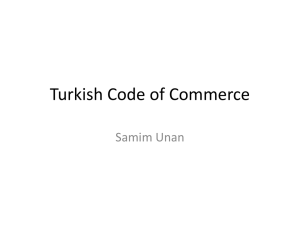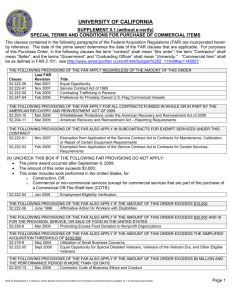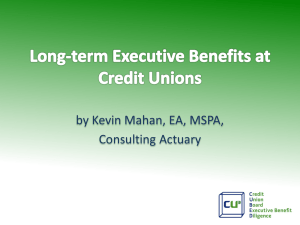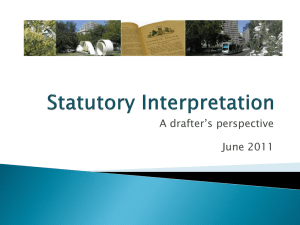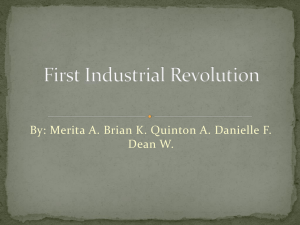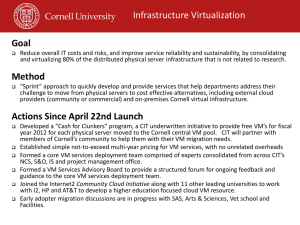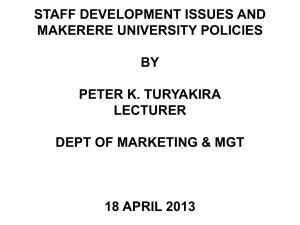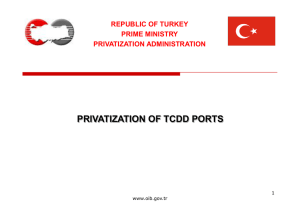Karachi Tax Bar Association
advertisement
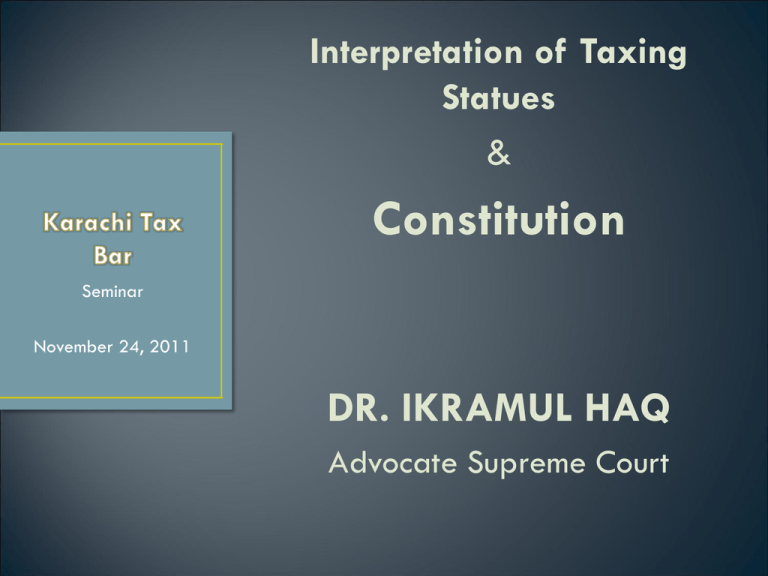
Interpretation of Taxing Statues & Constitution Seminar November 24, 2011 DR. IKRAMUL HAQ Advocate Supreme Court Money Bill debate Mir Muhammad Idris v FOP PLD 2011 SC 213 Sindh High Court Bar v FOP PLD 2009 SC 789 WWF cases by Karachi & Lahore High Courts reported as 2010 PLC 306 and 2011 PTR 32 (H.C.Lah) respectively • Tax is different from fee • “…tax is levied as a part of common burden, while a fee is a payment for special benefit or privilege…a tax is imposed for public purposes and is not supported by any consideration for services in return, while fee is levied in view of services rendered.”—Biafo Industries v FOP PTCL 2000 CL 384 • No tax except by or under the authority of Act of Parliament [Article 77] “A fiscal statute should be construed strictly and no question of equitable construction arises”.—CIT East Bengal v Narayan Roy and others (1959) 1 TAX (III-207) (S.C. Pak) • Fiscal rules are meant for good governance—Shahtaj Sugar Mills Ltd v G A Jahangir and others 2004 PTD 162 (H.C. Lah). • Literal approach unless it leads to manifest absurdity—CIT/WT Sialkot Zone v Thapur (Pvt) Ltd 2002 PTD 2112 does not apply to machinery provisions— Deans Associates (Pvt) Ltd v IAC 2002 PTD 441 • Interpretation is a process through which the courts seek to ascertain the intention of legislation. • When language of law is unambiguous, no rule of interpretation can be employed—A. Rehman alias Abdullah and another v FOP and others 2002 PTD 804 (H.C. Kar). • • • • Constitutional perspective General Comments Extraterritoriality Constitutionality Doctrine of wide discretion and equality clause • Taxation rights are unlimited unless confiscatory • Theory of reading down • Pith and substance test Violation • Supreme Court in Elahi Cotton Mills Ltd and others v. Federation of Pakistan (1997) 76 TAX 5 (S. C. Pak.) held that: “If we were to construe Entry 52 of the Legislative List keeping in view the above meanings of the expression “in lieu of”, it becomes evident that the Legislature has the option instead of invoking Entry 47 for imposing taxes on income, it can impose the same under Entry 52 on the basis of capacity to earn in lieu of Entry 47, but it cannot adopt both the methods in respect of one particular tax. • Since presumptive taxes are in lieu of income tax, once option under Entry 52 is exercised, no income tax can be levied in addition to presumptive tax. This principle has been violated in Income Tax Ordinance, 2001 wherever in addition to presumptive tax, other withheld taxes have been treated minimum tax or unadjustable or un-refundable. Golden principle • Letter of the law must be adhered to • No taxation by inference • Tax and equity • Harmonious construction • Casus omissus cannot be supplied by the court except in the case of clear necessity and when reason for it is found in the four corners of the statute itself • Avoidance of tax • Words to be taken in rightful and lawful sense—rule of bona partem • Exceptions to strict rule: What follows from it • Machinery provisions • Purposive approach • Leading to absurdity • Remedial statutes • Beneficial provisions Tax must be imposed by clear and unambiguous language • • • • • • • • • Parliamentary debates Reports of select committees Statement of objects Explanatory notes Legislative history Contemporanea exposito Judicial decisions Acts in pari materia Construction by executive • • • • “where two or more words which are susceptible of analogous meaning are coupled together, noscitur sociis. They are understood to be used in cognate sense.”—Maxwell on Interpretation of Statutes • • • • Preamble Marginal notes Interpretation clause Other relevant provisions in the context Ejusdem generis Noscitur sociis Redundancy to be avoided Special overrides the general Things should be done as per law or should not be done at all • Two possible views • Construction leading to massive evasion of taxes • Penalty provisions • Curative provisions • Directory provisions • Mandatory provisions • Charging and exempting provisions • SROs, Circulars, Circulars letters, and directions etc “it is true that the interpretation of tax laws is far from being an easy matter”—Hatz Trust of Simla v CIT Punjab and NWFP 5 ITC 8 (High Court Lahore) • • • • • • • • • Exclusive definitions Inclusive definitions General words General Clauses Act Technical and legal words Popular and commercial sense Context and intent Schedules Rules Beneficial and curative laws are retrospective in nature • General • Exemptions: burden of proof • Interpretation of notifications and exemptions • Exemption to be construed strictly • When exemptions should be liberally construed • No estoppel • Retrospectively Doctrine of beneficial interpretation applies to charging and not machinery provisions—Barnal Commission Shop v ITO 1963 PTD 534 (H.C. Lah) • General • Machinery provisions • Distinction between charging and machinery provisions • Procedural provisions are generally retrospective • Limitation to liberal rule of interpretation of machinery provisions • Retrospectivity and vested rights “Legal fictions are only for definite purpose—a statutory fiction in one law cannot be extended to others”—Elahi Cotton v FOP 1997 PTD 1555 • Tax law being a complete code is to be read as a whole—Allied Motors Ltd v CIT 2004 PTD 1173 (H.C. Kar.) • Double taxation • Legal fictions • Territorial nexus • Rules on interpretation of bilateral tax agreements • Delegation of powers and discretion Words of caution “The taxing statutes are a woven structure of an especial code of principles, which include norms not common to other legislative enactments, and are based on conceptual perspectives sometimes at variance with the accepted norms of general law.”—R S Pathak, Former Chief Justice of India and Judge International Court of Justice at The Hague on interpretation of statutes • Maxwell’s Interpretation of statutes • Craies on Statute Laws • Crawford Statutory Construction • Interpretation of Taxing Statutes by Markandey Katju • S M Zafar’s Principles of Statutory Interpretation • Huzaima & Ikram’s Principles of Tax Laws with International Glossary It was a great honour and pleasure to interact with this august gathering.
